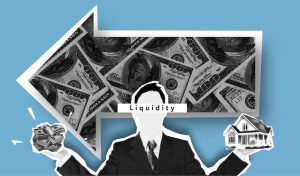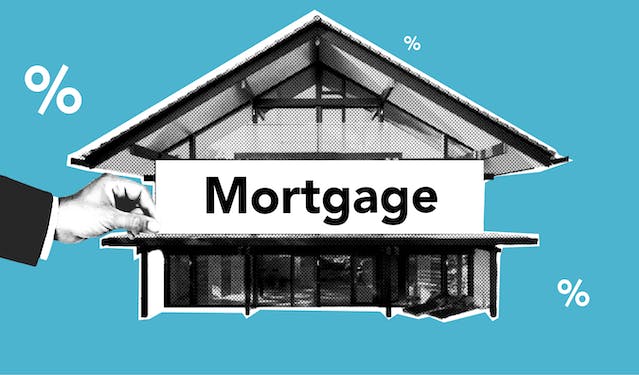How much does mortgage insurance cost and what does it entail?
Mortgage Loan Interest Rates: In 2024 Now.

Compared to the standard insurance policies we purchase to safeguard ourselves against monetary loss, mortgage insurance is significantly different.
Typically, we pay a monthly premium to an insurance company to help protect our vehicle, house, and even our health against unanticipated events like flood damage, a serious illness, or an accident.
Mortgage insurance, however, shields the lender from a monetary loss in the event that you default on your loan, not the home buyer. But you still gain from it in a sense.
This is the operation of mortgage insurance.
See also Buying a home for the first time in 2024: What you should know
Mortgage insurance: what is it?
The purpose of mortgage insurance was to incentivize lenders to extend their home loans to purchasers with little savings. Lenders are able to cushion their losses from the small percentage of loans that default by imposing fees on borrowers.
This makes it possible for loan programs with smaller down payments and simpler credit requirements.
Therefore, even though borrowers contribute to the cost of a mortgage by paying the insurance premium that benefits lenders, more people are able to qualify for homeownership.
See also: 5 methods to secure the best mortgage rates in 2024
Does my mortgage require insurance?
You won’t need to get mortgage insurance if you can qualify for a conventional mortgage with at least a 20% down payment. However, in other cases, some kind of mortgage insurance will be needed.
The name of mortgage insurance may vary based on the kind of loan you are requesting.
Insurance for private mortgages
On a conventional loan, a borrower who makes a down payment of less than 20% is required to purchase private mortgage insurance (PMI). It can be an upfront payment made at the time of closing on a house, but it is typically due on a monthly basis and included in the regular loan payment.
FHA mortgage insurance

Mortgage insurance premiums are required for all FHA loans (MIP). It consists of a premium added to the monthly mortgage payment and an upfront fee paid at closing or rolled into the entire loan amount.
Funding charge for VA
Mortgage insurance is not a requirement for loans guaranteed by the Department of Veterans Affairs. There’s a catch, though. Loans from the VA have an upfront “funding fee.” Thus, even though it isn’t known as mortgage insurance, it has the same function.
Mortgage insurance through USDA
USDA loans, or mortgages insured by the Department of Agriculture, have monthly payments and insurance premiums that are either paid at closing or rolled into the loan balance.
See also: Commonalities among the top mortgage lenders
What is the cost of mortgage insurance?
As we’ve seen, the terms used to describe different types of mortgages differ. Mortgage insurance costs vary as well.
Conventional loans: The amount of the loan, the down payment, and your credit score all affect the PMI costs. It may be a one-time payment, a recurring monthly fee, or both. PMI premiums typically range according to Chase Bank, from 0.22% to 2.25% of the total amount of your loan.
1.75% of the loan amount is the upfront MIP for FHA loans. It would total $3,500 to be paid at closing or added to the loan amount, for instance, on a $200,000 loan.
The monthly payment is increased by ongoing annual premiums, which are calculated by dividing the remaining financed mortgage balance by 12 and ranging from 0.15% to 0.75%.
VA loans: Funding fees for VA loans vary from 1.25% to 2.15% for first-time loans and are dependent on the loan type, amount, and down payment. For borrowers who have disabilities related to their service, or in certain other cases, there is no charge.
loans from the USDA: An up-front 1% guarantee fee as well as an 0.35% of your loan balance is an ongoing annual fee.
See more: 2024 mortgage requirements for a 3% down payment
Can I deduct my mortgage insurance taxes?

Through December 31, 2021, the IRS permitted the deduction of mortgage insurance on itemized tax returns. The deduction is no longer available as it has expired.
How to terminate your mortgage insurance policy
Conventional loans: Once a homeowner owns 20% of the property, PMI can usually be waived. This can be accomplished by having mortgage payments lower the principal amount owed on the loan or by increasing the current market value of the home, though an appraisal will likely need to be paid for.
Once your home’s equity reaches 22%, a lender may also automatically cancel PMI, but it’s important to get in touch with your lender or to verify that with the loan servicer.
When you have paid 15 years of a 30-year loan, for example, or halfway through your loan term, you can also cancel PMI.
READ MORE:
1. Health and Fitness Tips for You
2. Upcoming New Movies
3. Get New Jobs Directly From Companies FREE Visa
4.Latest News of Cryptocurrency and Bitcoin
5. Real Estate Business for you
6. Latest News
7. Best Insurance Policy for Everyone
READ MORE:
- 1. Strategic Management Process: Top5 Jobs In Dubai FREE VISA Apply Now
- 2. Vancouver Time fighting for $12,000 in travel insurance Nightmare FREE
- 3. DIABETIC DIET : A PROFESSIONAL’S GUIDE TO A WARM AND WELL-BEING
- 4. NICOLAS CAGE STATES : HE HAS 3 OR 4 MORE MOVIES LEFT NOW
- 5. EMPRESS CRACKS: FOR THE FIRST TIME SINCE APRIL
- 6. DESPITE MEANING: DESPITE HIGH RATES, MORE US HOME BUYERS ARE WILLING TO BUY
- 7. A 44-YEAR-OLD BOSTON WOMAN WAS KILLED BY A SHARK ATTACK IN THE BAHAMAS WHILE ON VACATION







